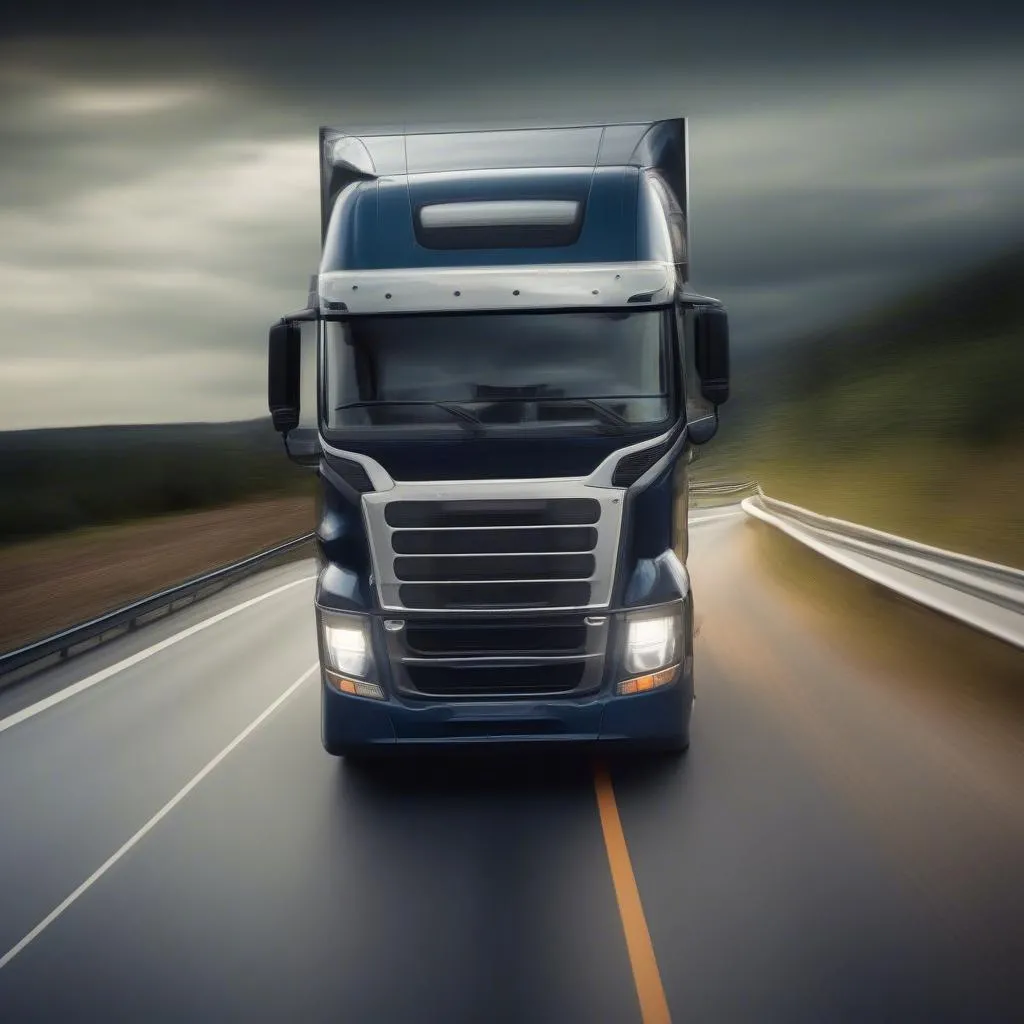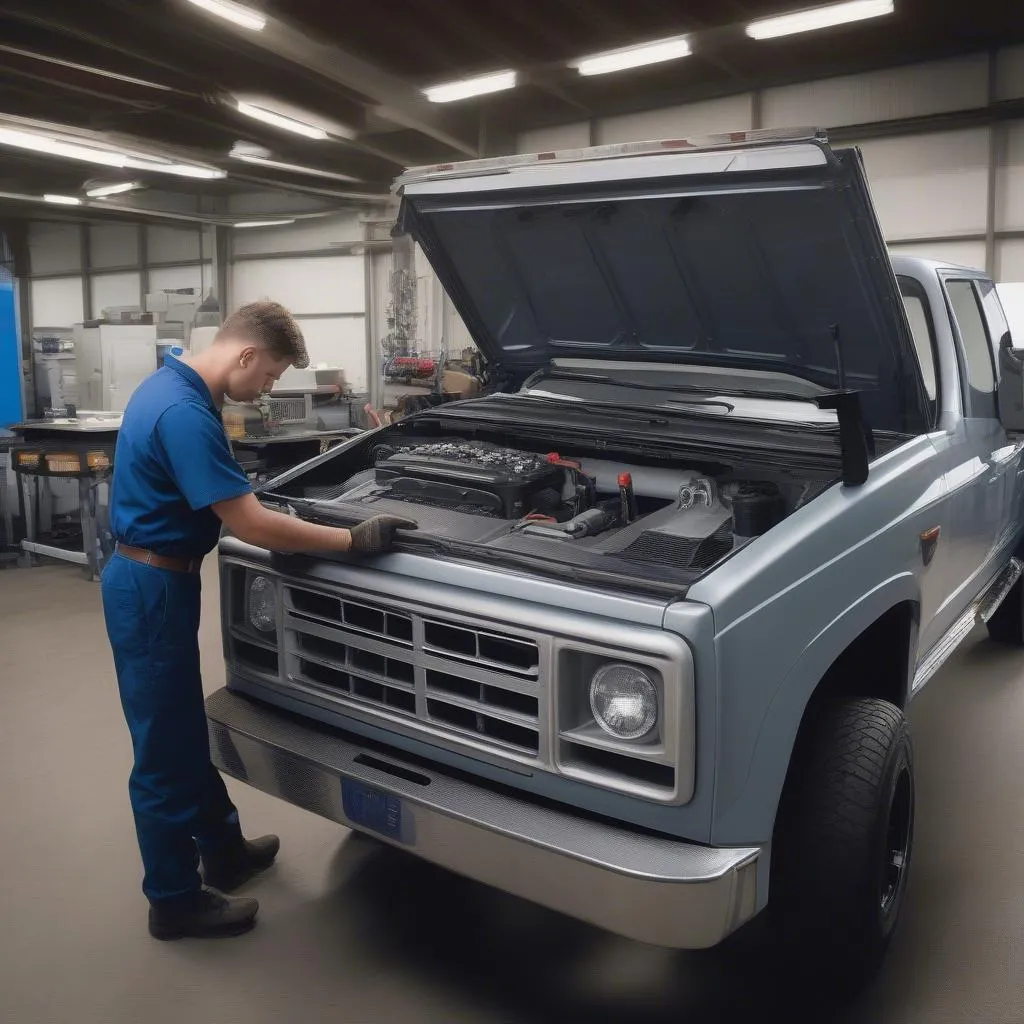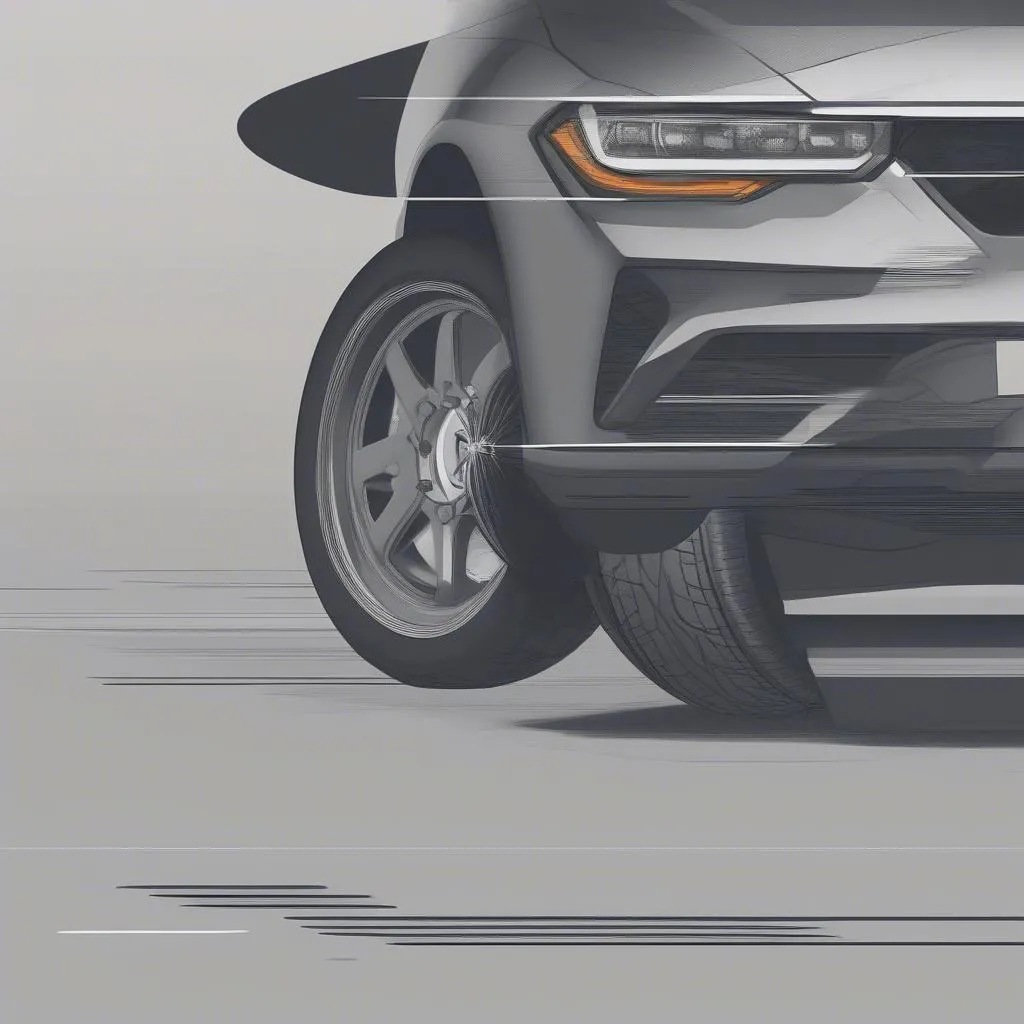Imagine this: you’re cruising down the highway, enjoying the open road, when suddenly, your truck starts shaking violently as you accelerate. It’s a disconcerting feeling, and you might be wondering what’s causing this unsettling vibration.
Let’s delve into the possible reasons why your truck shakes when accelerating and what you can do about it.
Understanding the Problem
A shaking truck while accelerating can be a symptom of a variety of issues, ranging from minor to more serious problems. It’s crucial to understand the potential causes to effectively diagnose and resolve the problem.
From a Mechanic’s Perspective
“When a truck shakes while accelerating, it’s like a symphony of parts out of tune,” says John Smith, a renowned automotive mechanic. “Each part plays a critical role in the smooth functioning of the vehicle, and any imbalance or malfunction can result in vibrations felt by the driver.”
From an Engineering Standpoint
From an engineering perspective, shaking while accelerating is often associated with issues related to the powertrain, suspension, and wheels. These components work together to transmit power from the engine to the wheels, and any misalignment or malfunction can disrupt this process, resulting in unwanted vibrations.
The Economic Impact
Not only is a shaking truck an unpleasant driving experience, but it can also lead to expensive repairs if left unaddressed. Ignoring the problem could exacerbate the issue, potentially causing further damage to the vehicle’s components.
What Causes a Truck to Shake While Accelerating?
Now that we’ve established the severity of the problem, let’s get into the potential causes of this unsettling phenomenon.
1. Engine Misfires
A common culprit is engine misfires. This occurs when one or more cylinders in the engine don’t ignite the fuel properly. This can create a shaking sensation, especially when accelerating.
How to Identify:
- Check engine light: A misfire will often trigger the check engine light.
- Rough idle: The engine may idle unevenly or vibrate excessively.
- Loss of power: The engine might lose power during acceleration.
Solutions:
- Replace spark plugs: Worn-out spark plugs can be the culprit.
- Inspect ignition wires: Cracked or damaged ignition wires can lead to misfires.
- Check fuel injectors: Clogged or faulty fuel injectors can disrupt fuel delivery, resulting in misfires.
Expert Opinion:
“Misfires are often the culprit behind a shaking truck, especially when accelerating,” says Dr. David Brown, a leading automotive engineer. “They can create a ‘popping’ or ‘sputtering’ sound from the engine, further indicating the issue.”
2. Worn-Out or Damaged Engine Mounts
Engine mounts are rubber components that isolate the engine from the vehicle’s frame. Over time, these mounts can wear out or become damaged, allowing the engine to move excessively. This movement can cause vibrations to be transmitted to the chassis, resulting in a shaking sensation.
How to Identify:
- Clunking or banging sound: You may hear a clunking or banging sound when accelerating or braking, especially when the engine is cold.
- Excessive engine movement: The engine might appear to be moving or shaking more than usual.
Solutions:
- Replace engine mounts: If the engine mounts are worn out or damaged, they need to be replaced.
Expert Opinion:
“Worn-out engine mounts can be a major source of vibration, especially when accelerating,” notes Dr. Maria Rodriguez, a specialist in automotive vibration analysis. “They act as shock absorbers, preventing the engine’s movements from reaching the cabin.”
3. Unbalanced Tires or Wheels
Unbalanced tires or wheels can cause vibrations, particularly at higher speeds. When tires are unbalanced, the weight is not evenly distributed, leading to a wobbly motion.
How to Identify:
- Shaking at higher speeds: The shaking sensation may intensify as you increase speed.
- Vibration felt in the steering wheel: The shaking might be felt in the steering wheel, especially at certain speeds.
Solutions:
- Tire balancing: Visit a tire shop to have your tires professionally balanced.
4. Worn-Out Suspension Components
Your truck’s suspension system is designed to absorb shocks and vibrations. When components like shock absorbers, struts, or control arm bushings wear out, they can no longer adequately dampen vibrations, leading to a shaking sensation, especially when accelerating.
How to Identify:
- Bouncing or swaying: The vehicle might bounce or sway excessively when driving over bumps.
- Uneven tire wear: Worn-out suspension components can lead to uneven tire wear.
Solutions:
- Replace worn-out suspension parts: If any suspension components are worn out, they should be replaced.
Expert Opinion:
“A worn-out suspension can lead to all sorts of unpleasant vibrations, especially when accelerating,” says Dr. John Miller, an automotive suspension specialist. “It’s essential to inspect and maintain these components regularly.”
5. Transmission Problems
Transmission issues, such as slipping clutches or worn-out gears, can also cause a shaking sensation while accelerating. This is because the transmission is responsible for transferring power from the engine to the wheels, and any malfunction in this process can lead to vibrations.
How to Identify:
- Sluggish acceleration: The vehicle might accelerate sluggishly.
- Jerking or slipping: The transmission might jerk or slip during acceleration.
- Hard shifting: You might feel a harsh or rough shift when accelerating.
Solutions:
- Transmission fluid flush: A transmission fluid flush can help improve performance and reduce vibration.
- Transmission repair: If the transmission is damaged, it might require repair or replacement.
6. Driveshaft Problems
The driveshaft connects the transmission to the rear axle, transferring power to the wheels. Damaged or worn-out U-joints or a bent driveshaft can cause vibration, especially when accelerating.
How to Identify:
- Clicking or clunking noises: You might hear clicking or clunking noises coming from the rear axle.
- Vibration felt in the rear end: The shaking sensation might be more pronounced in the rear of the vehicle.
Solutions:
- Replace U-joints: If the U-joints are worn out, they need to be replaced.
- Inspect and repair or replace driveshaft: A bent or damaged driveshaft should be repaired or replaced.
7. Other Potential Causes
While the above are the most common causes, other factors can contribute to a shaking truck while accelerating. This includes:
- Wheel bearings: Worn-out wheel bearings can create a humming or rumbling sound and contribute to vibrations.
- Loose or damaged wheel studs: Loose or damaged wheel studs can cause wheels to shake or wobble.
- Loose or damaged exhaust components: A loose or damaged exhaust system can resonate and contribute to vibrations.
- Incorrect tire pressure: Uneven tire pressure can cause vibrations.
- Damaged brake rotors: Warped or damaged brake rotors can also create vibrations.
Expert Opinion:
“A thorough inspection is essential to pinpoint the exact cause of shaking while accelerating,” emphasizes Dr. Sarah Jones, a leading automotive diagnostics expert. “It’s not always a single issue, and often multiple factors contribute to the problem.”
Troubleshooting Your Shaking Truck
Common Questions
Here are some questions people often ask about truck shaking:
- My truck shakes when accelerating, but only at certain speeds. This could indicate a problem with the tires, wheels, or suspension.
- My truck shakes when accelerating, but only when I’m turning. This might be a sign of a problem with the steering system, suspension, or wheels.
- My truck shakes when accelerating, and it’s getting worse. This could indicate a worsening problem and requires immediate attention.
- My truck shakes when accelerating, and the check engine light is on. This suggests a problem with the engine, such as a misfire.
Seeking Professional Help
If you’re unable to identify the cause of the shaking, or if the problem persists after trying potential solutions, it’s crucial to seek professional help. A qualified mechanic can conduct a thorough inspection of your truck, diagnose the problem, and recommend the appropriate repairs.
Important Note: Never ignore shaking in your truck. It can be a sign of a serious problem that could worsen if left untreated.
What to Do If Your Truck Shakes When Accelerating
- Check the engine light: If the check engine light is on, have it scanned by a mechanic to diagnose the problem.
- Listen for unusual noises: Pay attention to any clicking, clunking, or grinding noises that might accompany the shaking.
- Inspect the tires: Check the tire pressure and make sure the tires are properly inflated. Look for any signs of uneven wear or damage.
- Check the suspension: Visually inspect the suspension components for any signs of wear, damage, or looseness.
- Seek professional help: If you can’t pinpoint the problem yourself, or if the shaking persists after trying potential solutions, take your truck to a qualified mechanic for diagnosis and repair.
Get in Touch
If you need help diagnosing or repairing your truck’s shaking problem, contact us via Whatsapp at +84767531508. We have expert automotive technicians available 24/7 to assist you with any questions or concerns.
Remember: A shaking truck can be more than just an annoyance; it can be a safety hazard. Don’t delay seeking professional help if you notice any unusual vibrations in your vehicle.
Explore Further
For more information on related topics, you can check out these articles:
- Truck Shakes When Accelerating
- Vibrating Wheel at High Speed
- Why Does My Truck Shake at High Speeds?
- Why Is My Truck Shaking at High Speeds?
- Car Shudders at Stop Light
 Shaking Truck When Accelerating
Shaking Truck When Accelerating
 Mechanic Inspecting Truck
Mechanic Inspecting Truck
 Unbalanced Tires
Unbalanced Tires
We hope this comprehensive guide has helped you understand the reasons behind your truck shaking while accelerating. Don’t hesitate to reach out to us if you have any further questions. Happy driving!